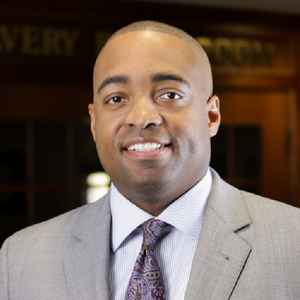
Education
Jonathan Small | February 27, 2016
Free Market Friday: Desegregation through choice
Jonathan Small
Efforts to help the most vulnerable through school choice have received quite the boost.
In January, Martin Luther King III marched for school choice. In February, Grammy Award-winning musician Christopher Brian “Chris” Bridges, aka Ludacris, endorsed education savings accounts. ESAs allow parents to direct a portion of their child’s per-pupil funding and use the money to pay for public or private school tuition, tutoring, online learning and college savings.
Gov. Mary Fallin has called for the creation of ESAs.
Last week, ESA legislation passed out of the House Common Education Committee. It is now headed to the House floor.
The next day, the Oklahoma Supreme Court unanimously upheld a school voucher program, the Lindsey Nicole Henry Scholarship Program for Children with Disabilities.
Unsurprisingly, some are peddling the myth that school choice will exacerbate racial segregation.
Fortunately, the opposite is true.
“Of the eight studies that have examined racial segregation in private choice programs, seven found that choice moved students from more segregated classrooms and schools into less segregated classrooms and schools; one found no visible difference,” writes education researcher Greg Forster, author of a 2013 meta-analysis of the private school choice literature. “No empirical study has ever found that private school choice increased racial segregation.”
Results of an October 2015 study pointed in the same direction. In “The Integration Anomaly: Comparing the Effects of K-12 Education Delivery Models on Segregation in Schools,” economist Benjamin Scafidi found that public schools are becoming more segregated but that school choice increases integration.
“The government school system is very heavily segregated by race because it’s tied to residence,” Forster wrote recently. He also noted, “School choice breaks down racial barriers by making it possible for students to go to school outside their neighborhoods. The typical private choice school is an inner-city Catholic school – more diverse, not less, than the nearby public schools. If we care about segregation, the worst thing we can do is indulge these paranoid fantasies about private schooling.”
Having worked in Oklahoma City public schools, I’ve personally witnessed noticeable segregation. In the suburban school district where I live now, my four daughters would be among the few of African-American descent at their local public school.
To empower the most vulnerable and increase racial integration, expansion of school choice is a must.

Jonathan Small
President
Jonathan Small, C.P.A., serves as President and joined the staff in December of 2010. Previously, Jonathan served as a budget analyst for the Oklahoma Office of State Finance, as a fiscal policy analyst and research analyst for the Oklahoma House of Representatives, and as director of government affairs for the Oklahoma Insurance Department. Small’s work includes co-authoring “Economics 101” with Dr. Arthur Laffer and Dr. Wayne Winegarden, and his policy expertise has been referenced by The Oklahoman, the Tulsa World, National Review, the L.A. Times, The Hill, the Wall Street Journal and the Huffington Post. His weekly column “Free Market Friday” is published by the Journal Record and syndicated in 27 markets. A recipient of the American Legislative Exchange Council’s prestigious Private Sector Member of the Year award, Small is nationally recognized for his work to promote free markets, limited government and innovative public policy reforms. Jonathan holds a B.A. in Accounting from the University of Central Oklahoma and is a Certified Public Accountant.